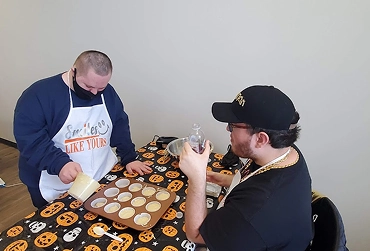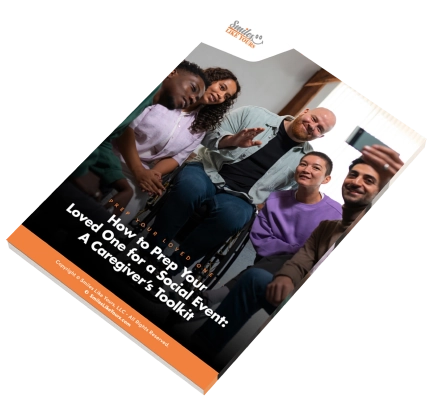Finding safe, affordable, and supportive housing can be one of the biggest challenges for adults with developmental disabilities (DD) and their families. While programs exist to provide residential support, navigating the options, eligibility requirements, and resources can feel overwhelming. That’s why a comprehensive housing guide for DD adults is essential—it helps families plan long-term care, empowers individuals to pursue independence, and connects them to services designed to support their unique needs.
In this article, we’ll explore the most important aspects of housing for adults with developmental disabilities, including types of housing, funding and waiver programs, supportive services, and community-based options available in Virginia.
Why Housing Support Matters for Adults with DD
Safe and stable housing is more than just a roof over someone’s head—it’s the foundation for building an independent and fulfilling life. For adults with DD, housing solutions often need to combine accessibility, care, and social opportunities.
A well-designed housing plan helps to:
-
Promote independence – Many adults want to live as independently as possible, with supports available when needed.
-
Ensure safety and accessibility – From wheelchair-accessible housing to staff availability, housing should meet physical and emotional needs.
-
Foster social inclusion – Housing connected to communities and social programs reduces isolation.
-
Support caregivers – Reliable housing options relieve families of the stress of long-term planning.
If you’re beginning this journey, consider exploring available disability services in Henrico, VA to understand what local resources exist for housing and care.
Housing Options for Adults with Developmental Disabilities
Every individual’s needs are unique, which means housing solutions should be flexible and tailored. Here are the most common models:
1. Independent Living
For higher-functioning adults with DD, independent apartments or shared homes can be ideal. These arrangements may include:
-
Case managers checking in regularly
-
Supportive technology (alarms, reminders, etc.)
-
Community-based social programs to encourage engagement
2. Supported Living Programs
Supported living services allow adults with DD to live in apartments or group homes while receiving daily assistance. Support can include:
-
Help with meals, medication, or hygiene
-
Transportation to work or social outings
-
Staff available for emergencies
3. Group Homes & Residential Facilities
For adults requiring more structured support, residential facilities provide staff 24/7. Group homes typically host small groups of individuals in a family-style environment.
4. Family or Host Homes
Some families choose host home programs where adults live with caregivers outside of their biological family. This option can provide both independence and personalized care.
5. Transitional Housing Programs
These short-term housing arrangements help adults with DD move from family care into more independent living situations.
Funding Housing Through the Virginia DD Waiver
One of the most critical resources for families is the Virginia Developmental Disabilities (DD) Waiver Program. This Medicaid waiver provides funding for services such as:
-
Residential support
-
In-home care
-
Day programs
-
Transportation services
-
Assistive technology
If you are new to the waiver process, you can find helpful guidance through Virginia DD Waiver services or by contacting local disability resource centers.
Creating a Housing Plan: Steps for Families
-
Assess the individual’s needs – Consider medical, social, financial, and accessibility requirements.
-
Explore local services – Research organizations in Henrico and surrounding areas that provide housing or supportive services.
-
Secure funding – Apply for the Virginia DD Waiver and other benefits.
-
Visit housing options – Schedule open houses, tours, and family meetings with potential providers. (See upcoming events for opportunities to connect.)
-
Build a long-term plan – Consider future needs, such as aging caregivers or increased medical support.
Housing Resources for Families in Virginia
Families don’t need to face this journey alone—numerous organizations provide guidance, including:
-
Smiles Like Yours – Offering housing support, day programs, and community integration.
-
Local disability boards and advocacy groups
-
Housing authorities offering accessible and affordable housing lists
-
National resource networks for developmental disability housing
To begin exploring housing and community options, you can connect with our team today.
Beyond Housing: Building a Community
While housing is a foundation, it’s equally important to connect adults with DD to programs that support social development, skills, and independence. These may include:
-
Community outings to encourage independence and reduce isolation
-
Social skills programs to foster communication and confidence
-
Tailored activities designed around individual strengths and goals
Families are encouraged to explore opportunities like safe social events for adults with disabilities to create connections that enhance overall quality of life.
Final Thoughts
Finding the right housing solution for adults with developmental disabilities requires careful planning, resource navigation, and support from trusted organizations. With the right guidance, individuals with DD can live in safe, supportive, and inclusive environments that promote independence and long-term stability.
If you are beginning your search, start by reviewing available housing programs, exploring community resources, and connecting with service providers who understand your journey.
Take the first step today by visiting Smiles Like Yours to learn more about housing support and services for adults with developmental disabilities in Virginia.



